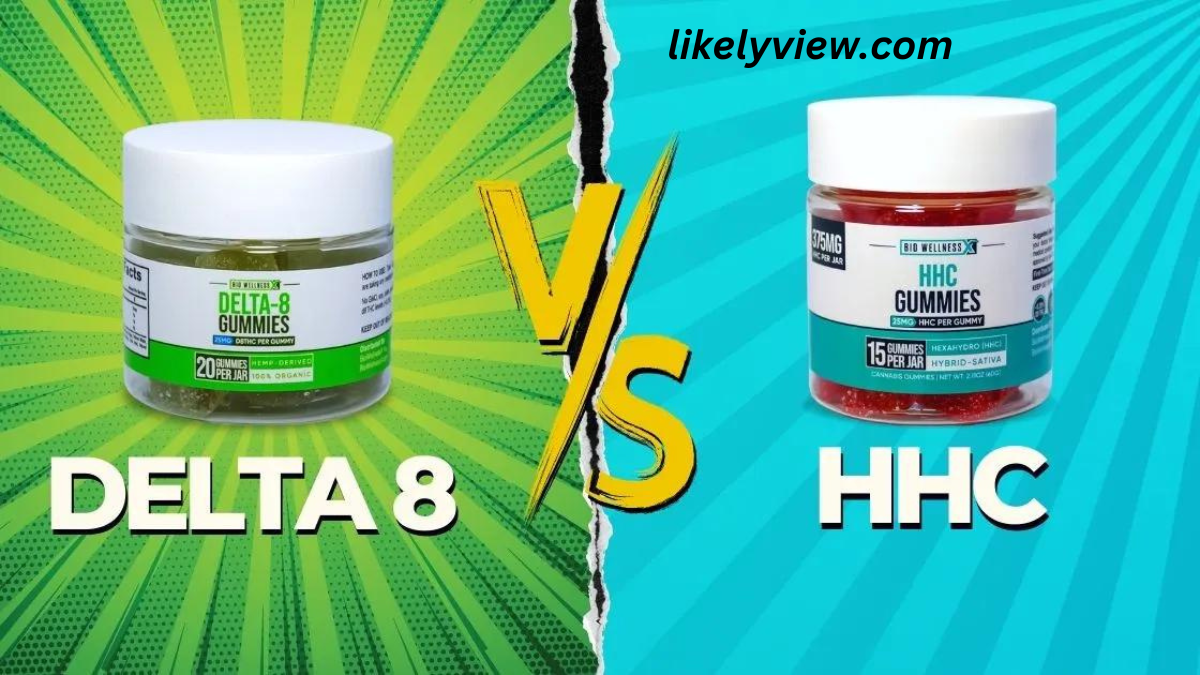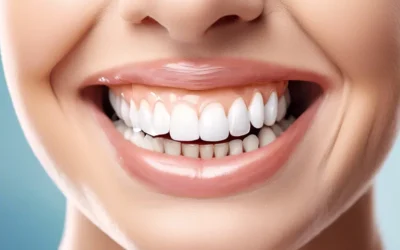HHC vs Delta 8: Navigating the Cannabinoid Landscape

hhc vs delta 8 As the cannabis world continues to evolve, enthusiasts and consumers are diving deeper into the diverse array of cannabinoids available. Among the most discussed lately are HHC (tetrahydrocannabinol) and Delta 8 THC (tetrahydrocannabinol). Both of these compounds offer unique effects and benefits, but they also come with their own sets of challenges and misconceptions. This article aims to break down the differences and similarities between HHC and Delta 8, helping you make informed decisions about which one might suit your needs best hhc vs delta 8.
Understanding Cannabinoids: The Basics

Before we dive into the specifics of hhc vs delta 8, it’s essential to understand what cannabinoids are. Cannabinoids are chemical compounds found in the cannabis plant that interact with the body’s endocannabinoid system (ECS). This system plays a vital role in regulating various physiological processes, including mood, memory, pain sensation, and appetite hhc vs delta 8.
The two most well-known cannabinoids are THC and CBD, but there are many others, including HHC and Delta 8. Each cannabinoid interacts with the ECS in different ways, leading to a variety of effects and benefits. This diversity is part of what makes cannabis such a fascinating subject for study and exploration.
What is Delta 8 THC?
Delta 8 THC is a cannabinoid derived from hemp that has gained significant popularity in recent years. Chemically similar to Delta 9 THC—the primary psychoactive compound in cannabis—Delta 8 is known for producing milder psychoactive effects. Many users report a sense of relaxation and euphoria without the intense anxiety or paranoia that can sometimes accompany Delta 9 THC consumption hhc vs delta 8.
The legality of Delta 8 is another appealing aspect. Derived from hemp, which is federally legal under the 2018 Farm Bill, Delta 8 products can be found in various forms, including edibles, tinctures, and vape cartridges. However, it’s essential to check local laws, as some states have moved to ban Delta 8 products.
Delta 8 is also praised for its therapeutic properties. Users often turn to it for relief from stress, anxiety, and pain. Research is still in the early stages, but preliminary findings suggest that Delta 8 could have potential benefits similar to those of Delta 9 but with a more manageable psychoactive experience hhc vs delta 8.
The Emergence of HHC
HHC, or tetrahydrocannabinol, is another cannabinoid that has recently caught the attention of cannabis enthusiasts. Discovered in the 1940s but gaining traction only now, HHC is a hydrogenated form of THC. The process of hydrogenation alters the molecular structure, making it less potent but offering some unique benefits hhc vs delta 8.
What sets HHC apart is its stability. Unlike Delta 9 THC, which can degrade and lose potency over time, HHC has a longer shelf life. This stability makes it an attractive option for manufacturers looking to produce reliable products. Some users claim that HHC provides a more balanced experience—offering euphoria without the foggy head that can sometimes accompany other cannabinoids hhc vs delta 8.
Additionally, HHC is also derived from hemp, making it federally legal under the same 2018 Farm Bill provisions as Delta 8. However, the market for HHC is not as developed, meaning consumers might find fewer product options compared to hhc vs delta 8.
Effects of Delta 8 THC
Delta 8 THC is often celebrated for its unique effects that sit somewhere between CBD and Delta 9 THC. Users frequently describe a sense of calm and relaxation, with many noting an uplifted mood. It tends to be less overwhelming, allowing users to enjoy the benefits of THC without feeling incapacitated hhc vs delta 8.
One of the primary attractions of Delta 8 is its potential for therapeutic benefits. Many users report that it helps with conditions such as anxiety, chronic pain, and insomnia. The psychoactive effects are usually milder, making it a suitable option for those who may be sensitive to THC or are new to cannabis.
Moreover, because of its lower potency, Delta 8 is often preferred for daytime use. Users can go about their daily activities while enjoying the pleasant effects of this cannabinoid, making it an excellent choice for those who need to stay productive hhc vs delta 8.
Effects of HHC
HHC, while lesser-known, also boasts a range of effects that appeal to many cannabis users. Many describe the experience as being similar to Delta 9 THC but without the intense high. This can make HHC an appealing option for those looking for a more mellow experience hhc vs delta 8.
Users often report feelings of euphoria and relaxation, much like with Delta 8. However, HHC might provide a slightly different twist, with some users noting enhanced clarity and focus. This unique effect can make it suitable for various activities, from creative pursuits to social gatherings hhc vs delta 8.
In terms of therapeutic potential, HHC appears to offer benefits similar to those of Delta 8 and Delta 9. Many users turn to HHC for pain relief, anxiety reduction, and improved sleep. As research continues, we may find more concrete evidence supporting these claims, but early anecdotal reports are promising.
Legality: HHC vs Delta 8
When it comes to legality, both HHC and Delta 8 THC operate in a somewhat gray area. As mentioned earlier, both compounds are derived from hemp, making them federally legal under the 2018 Farm Bill. However, state laws vary significantly, with some states opting to restrict or outright ban Delta 8 products.
HHC’s legal status is less clear, primarily because it has not yet been widely addressed in legislation. While it is currently legal at the federal level, some states may have their own regulations concerning cannabinoids derived from hemp. Consumers must stay informed about local laws to ensure they are compliant and can enjoy these cannabinoids safely hhc vs delta 8.
The ongoing evolution of cannabis legislation means that both HHC and Delta 8 could face regulatory changes in the future. As public awareness and acceptance of cannabinoids grow, more concrete legal frameworks will likely emerge, potentially clarifying the status of these cannabinoids.
Consumption Methods: HHC vs Delta 8
Both HHC and Delta 8 THC can be consumed in various ways, each with its pros and cons. Understanding these methods can help you choose the best option for your lifestyle and preferences hhc vs delta 8.
Delta 8 Consumption Methods
Delta 8 products come in various forms, including:
Vape Cartridges: Delta 8 vape cartridges are popular due to their convenience and fast onset of effects. Inhalation provides quick relief, making it an excellent choice for those who need immediate results. However, users should ensure they’re purchasing high-quality products to avoid harmful additives.
Edibles: Delta 8 edibles, like gummies and chocolates, offer a tasty way to consume the cannabinoid. The effects can take longer to set in, usually 30 minutes to two hours, but they tend to last longer than other consumption methods. This can be a great option for those looking for extended relief.
Tinctures: Delta 8 tinctures allow for precise dosing and quick absorption. Users can place a few drops under the tongue for faster effects or mix them into food or drinks. This versatility is appealing to those who want control over their intake hhc vs delta 8.
HHC Consumption Methods
HHC, while still gaining popularity, is available in similar forms:
Vape Cartridges: HHC vape cartridges provide an efficient way to experience the cannabinoid’s effects. Just like Delta 8, inhalation allows for rapid onset, making it a go-to choice for many users.
Edibles: HHC edibles are also on the rise, offering a delicious alternative for those who prefer not to vape. Users can enjoy the prolonged effects, similar to Delta 8 edibles, making them ideal for longer-lasting relief hhc vs delta 8.
Tinctures: HHC tinctures provide flexibility in dosing, and like their Delta 8 counterparts, they can be taken sublingually or added to food and beverages hhc vs delta 8.
Understanding these methods can greatly enhance your experience with either cannabinoid, allowing you to choose the most suitable approach for your lifestyle hhc vs delta 8.
Safety and Side Effects
As with any substance, it’s essential to consider the safety and potential side effects of HHC and Delta 8 THC. While both are generally regarded as safe when used responsibly, there are some considerations to keep in mind hhc vs delta 8.
Delta 8 Side Effects
Most users tolerate Delta 8 well, but some may experience side effects, including:
Dry Mouth: Often referred to as “cottonmouth,” this common side effect can occur with many cannabinoids, including hhc vs delta 8.
Dizziness: Some users may experience dizziness, especially if consuming higher doses.
Fatigue: While Delta 8 can be energizing for some, others may feel tired after use.
To minimize side effects, start with a low dose and gradually increase as needed. This approach allows you to gauge how your body reacts to Delta 8 without overwhelming yourself.
HHC Side Effects
HHC is relatively new to the market, and while early reports suggest it is generally well-tolerated, users should remain aware of potential side effects:
Similar Side Effects to THC: As with Delta 8, HHC may cause dry mouth, dizziness, or fatigue in some users.
Variable Potency: Because HHC is less understood, some products may vary significantly in potency. Always opt for lab-tested products from reputable sources to ensure you know what you’re consuming.
As with any cannabinoid, moderation is key. Listening to your body and adjusting your intake can help ensure a positive experience.
The Future of HHC and Delta 8
As interest in cannabinoids continues to grow, both HHC and Delta 8 are poised to play significant roles in the evolving landscape of cannabis products. Researchers are increasingly focusing on these cannabinoids, exploring their potential therapeutic benefits and effects.










